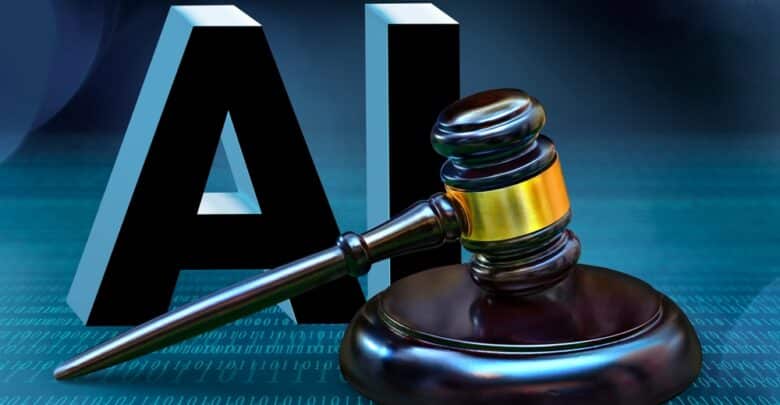Michael Cohen Admits Using AI Tool to Generate Bogus Cases

The former right-hand man of President Donald Trump, Michael Cohen, revealed in a sworn declaration that he utilized Google Bard to search for case precedents in his attempt to terminate court supervision following his release from prison. The former attorney of the Republican Party’s president declared that he utilized the artificial intelligence (AI) program to furnish his lawyers with fictitious citations.
AI Programs Faulted in Cohen’s Submission
A review of the unsealed court filings indicated the bogus citations were included in the motion filed by Cohen’s attorney seeking an early termination of court supervision. The fictitious authorities featured in the submission to the Manhattan judge petitioning to end the probation following his release.
Cohen made the submission after his release from prison for violating campaign finance laws, a charge he pleaded guilty to back in 2018.
Cohen’s explanation featured in his Friday 29 sworn affidavit ruling out awareness of hallucinations in using the generative text service. He admitted that he was unaware of the related risks associated with AI-powered chatbots, such as the possibility of showing real citations and legal descriptions.
Cohen Submitted Nonexist Citations
Cohen illustrated that he never realized that his attorney, David Schwartz, would include the cases in the submission wholesale without ascertaining their existence. The bogus case citations arose mid-December following the request by Judge Jesse Furman submitted to Cohen’s lawyer with copies, having found that neither case exists.
Judge Furman detailed contacting the US Court of Appeals clerk for the Second Circuit, who responded negatively that such cases existed. The clerk indicated that the docket number listed was invalid.
Cohen’s new attorney, Danya Perry, informed the court that she could not trace the court cases cited. The admission adds to the embarrassing episode for Cohen.
The former confidant to President Trump is identified to be the key witness in a criminal case in Manhattan. Trump faces charges for hushing money payments to silence adult film actor Stormy Daniels.
The legal team representing Trump alongside the former US president have repeatedly considered Cohen as a serial fabulist and liar. They mock his underperformance when presenting plaintiffs in the Trump Organization civil fraud trial.
The revelation that Cohen and his lawyer filed bogus citations offered by the free AI program adds ammunition to those attacking him. The resulting ridicule will ultimately feature attempts to undermine credibility to take the witness stand.
AI-Powered Tools Prove Unreliable to Offer Credible Legal Research
Cohen’s case is a second instance of a Manhattan court dealing with fictitious citations attributed to an AI generative program. In mid-2023, a federal judge in Manhattan confronted two lawyers for relying on fake AI–generated citations. The judge imposed $5,000 depending on ChatGPT to create the fake case citations.
The apologetic lawyers blamed OpenAI’s ChatGPT, alleging it tricked them into including fictitious legal research. Steven Schwartz and colleague Peter LoDuca admitted to filing a lawsuit that drew references to past cases, unaware they were invented by the AI-powered model developed by the Microsoft-backed OpenAI.
Mr Shwartz disclosed that the program provided by Sam Altman-led tech company to hunt for the legal precedents utilized to support the argument for the client suing Colombian airline Avianca following an injury suffered during a 2019 flight.
Shwartz indicated that the ChatGPT gave citations for court decisions in Martinez against Delta Airlines. Another case involved Zicherman against Korean Air Lines. The final case featured Varghese versus China Southern Airlines.
The June incident surfaced in the Cohen case, where the filing had fake cases with others involving nonexistent airlines. The two incidents prove that AI-powered programs are susceptible to misleading creations represented as statements of facts.
The AI chatbots will face scrutiny and perhaps result in legal experts disregarding their use in executing simple tasks such as research on past cases. Such development will deny the AI programs credibility even as the developers continually seek solutions to hallucination challenges.
Monitoring the development following Cohen’s admission in a sworn affidavit is essential.
Tokenhell produces content exposure for over 5,000 crypto companies and you can be one of them too! Contact at info@tokenhell.com if you have any questions. Cryptocurrencies are highly volatile, conduct your own research before making any investment decisions. Some of the posts on this website are guest posts or paid posts that are not written by Tokenhell authors (namely Crypto Cable , Sponsored Articles and Press Release content) and the views expressed in these types of posts do not reflect the views of this website. Tokenhell is not responsible for the content, accuracy, quality, advertising, products or any other content or banners (ad space) posted on the site. Read full terms and conditions / disclaimer.




